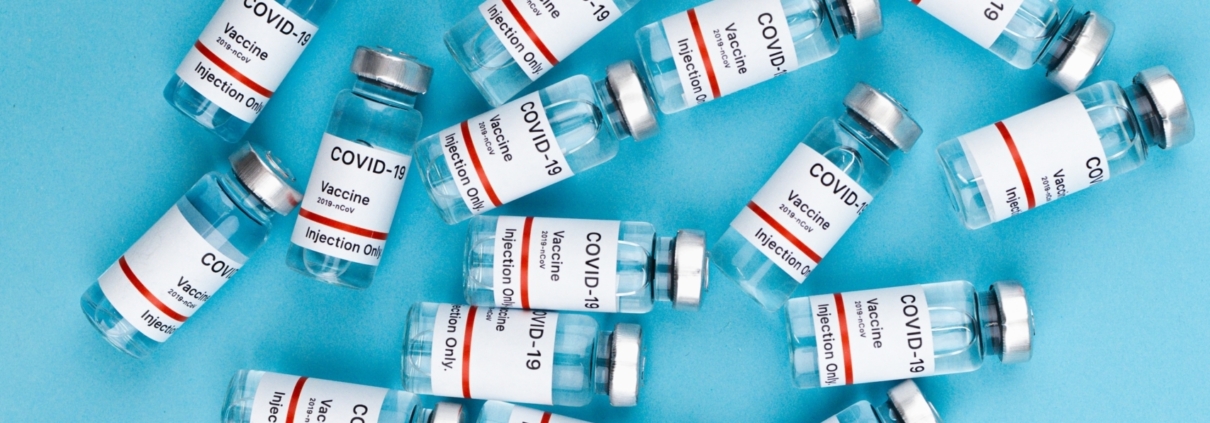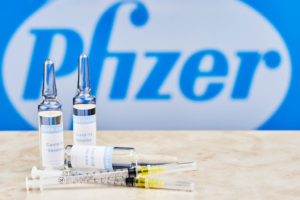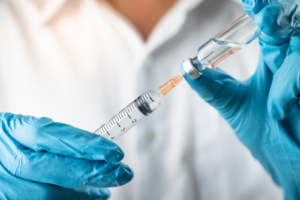The Future Is In WTO Hands
Here’s What You Need To Know
Negotiators from the United States, European Union, India, and South Africa are “iron[ing] out” what the World Trade Organization (WTO) head calls “the last few tweaks” in a proposed compromise to allow countries to waive intellectual property rights for COVID-19 vaccines. Public affairs professionals both in – and outside – the life sciences sector should pay close attention. Last year, President Biden reversed the U.S.’ long-standing opposition to an IP waiver at the WTO due to pressure from activists and access to medicines groups, who argued that an IP waiver on COVID-19 technologies would solve the problem of global vaccine inequity. We warned at the time, “While this may seem like an arcane debate over trade rules … there is far more at stake for the pharmaceutical industry and its ability to develop future health technologies.”
Fast forward to 2022, about two-thirds of the world has been vaccinated against coronavirus and “2.3 billion vaccine doses” currently sit unused, according to a recent market analysis. Moreover, the U.S. alone has already delivered hundreds of millions of vaccines to countries around the world, and several vaccine manufacturers have pledged not to enforce their patents on COVID-19-related technologies in low-income countries. Yet despite the wide availability of COVID-19 vaccines, South Africa, India, and a global campaign of activists continue to seek a COVID-19 IP waiver at the WTO, hoping to set a precedent that they can ultimately use to unwind IP protections on drugs for a range of other diseases, such as HIV/AIDS, cancer, and tuberculosis, among others. The waiver’s implications could also reach far beyond the drug industry and pave the way for activists to fight patents on any technologies they believe should be a global public good. That is why public affairs professionals operating in any IP-heavy sector ought to pay close attention. To do so, here is what you need to know.
Patents Were Never the Cause of Vaccine Inequity
While activists and supporters of the waiver push have been quick to blame patents for hindering access to COVID-19 vaccines in low-and-middle-income countries (LMICs), many global health experts paint a very different picture. Rutgers Global Health Institute director Dr. Richard Marlink, MD, for example, blames vaccine inequity on the lack of health infrastructure in LMICs, noting, “The majority of the world’s countries lack the capacity,” including “funding, manufacturing facilities, raw materials, and laboratory staff,” needed “to produce and distribute COVID-19 vaccines, and especially at the scale required to get this pandemic under control.” Pfizer’s vaccine alone requires 280 components from 86 suppliers in 19 countries as well as complex and sensitive equipment and highly skilled personnel. Even with a COVID-19 IP waiver, these LMICs would still not have the capacity to navigate complicated technology transfers between collaborators or build the global supply and manufacturing networks necessary to this task.
Subscribe to Receive Insights
"*" indicates required fields
Even if countries could overcome the manufacturing complexities, many LMICs lack the necessary infrastructure to facilitate distribution and administration to populations. India, for example, is one of the main forces behind the waiver push. Yet it is struggling to distribute its own surplus of COVID-19 vaccines due to various logistical barriers. Serum Institute of India Chief Executive Adar Poonawalla acknowledged, “All over the world, there is enough supply, but it is getting the jabs in arms which will take some time.”
So Who Does the Waiver Really Benefit?
Though China would technically be excluded from the proposed agreement due to the large amount of vaccines it exported during the pandemic, U.S. Trade Representative Katherine Tai has acknowledged the real and significant concern about China gaining from a waiver of intellectual property rights at the WTO. Removing IP protections on COVID-19 vaccines would be open season for China to manipulate platforms like mRNA, an innovative technology that may prove valuable in treating everything from the flu to cancer. Given free access to the mRNA recipes used for COVID-19 vaccines, China could reverse engineer the technology and potentially beat U.S. companies to market with its own vaccines and therapeutics.
The other primary benefactor of any patent waiver would be India, both the largest manufacturer of generic prescription drugs and the largest vaccine distributor in the world. “The World’s Pharmacy,” as one analysis called India, would be positioned to access key technologies without needing to pay for licensing or acting as a producer of other companies’ products. In addition, the waiver would advance anti-patent activists’ true agenda: upending the system that protects intellectual property rights to spur innovation with one that relies upon government-led research to bring to market public goods.
The Future of Intellectual Property Rights Is at Stake
Both lawmakers and those in the pharmaceutical industry see the push for an IP waiver at the WTO as a slippery slope that could lead to an eventual overhaul of the current research and development system and undercut long-standing patent and intellectual property protections, disincentivizing future innovation and development. Through a COVID-19 IP waiver, activists are hoping to “set a powerful precedent” for expanding access to medicines for other diseases, such as HIV/AIDS, cancer, and tuberculosis, among others. In fact, they are already pointing to other health crises they claim necessitate IP sharing; for example, activists are warning of a “cancer crisis” in South Africa and demanding expanded access to certain treatments. Likewise, Dr. Anthony Fauci urged the world to apply the lessons of the COVID-19 pandemic to the global tuberculosis crisis, arguing “all countries need to realize that they have ‘a moral responsibility’ to see infectious diseases, even if not affecting their own citizens, as their problem.”
Beyond the pharmaceutical sector, the WTO’s decision could impact intellectual property rights for other industries. Any global crisis could open the door for activists to argue that innovative, proprietary technology be made a global public good. Environmental activists are already lobbying the Biden Administration to rescind the intellectual property rights of companies working on technologies that curb CO2 emissions, citing the global climate crisis. The Paris Climate Agreement itself addresses the desire for such technology in LMICs and encourages participants in the treaty to enable technology transfer to these countries. Many of those same activists argue the climate crisis will increase global hunger and malnutrition, which could lead to challenges of IP protections for biotechnological and agricultural sector innovations as activists argue such patent protections limit the opportunities of farmers around the world to grow certain crops and feed those in need. If the global pandemic necessitates compulsory licensing, surely the global climate crisis or a global hunger crisis would too.
Pulling Back the Curtain
If ratified by the WTO, a COVID-19 IP waiver could set a dangerous precedent that threatens our ability to address future health challenges at home and around the world. Public affairs professionals in any industry governed by trade rules shaped by the WTO should be aware of the long-term consequences. Understanding who is shaping the debate, what their real agenda is, and how it will impact your interests will ensure your industry can stay ahead of the curve.



